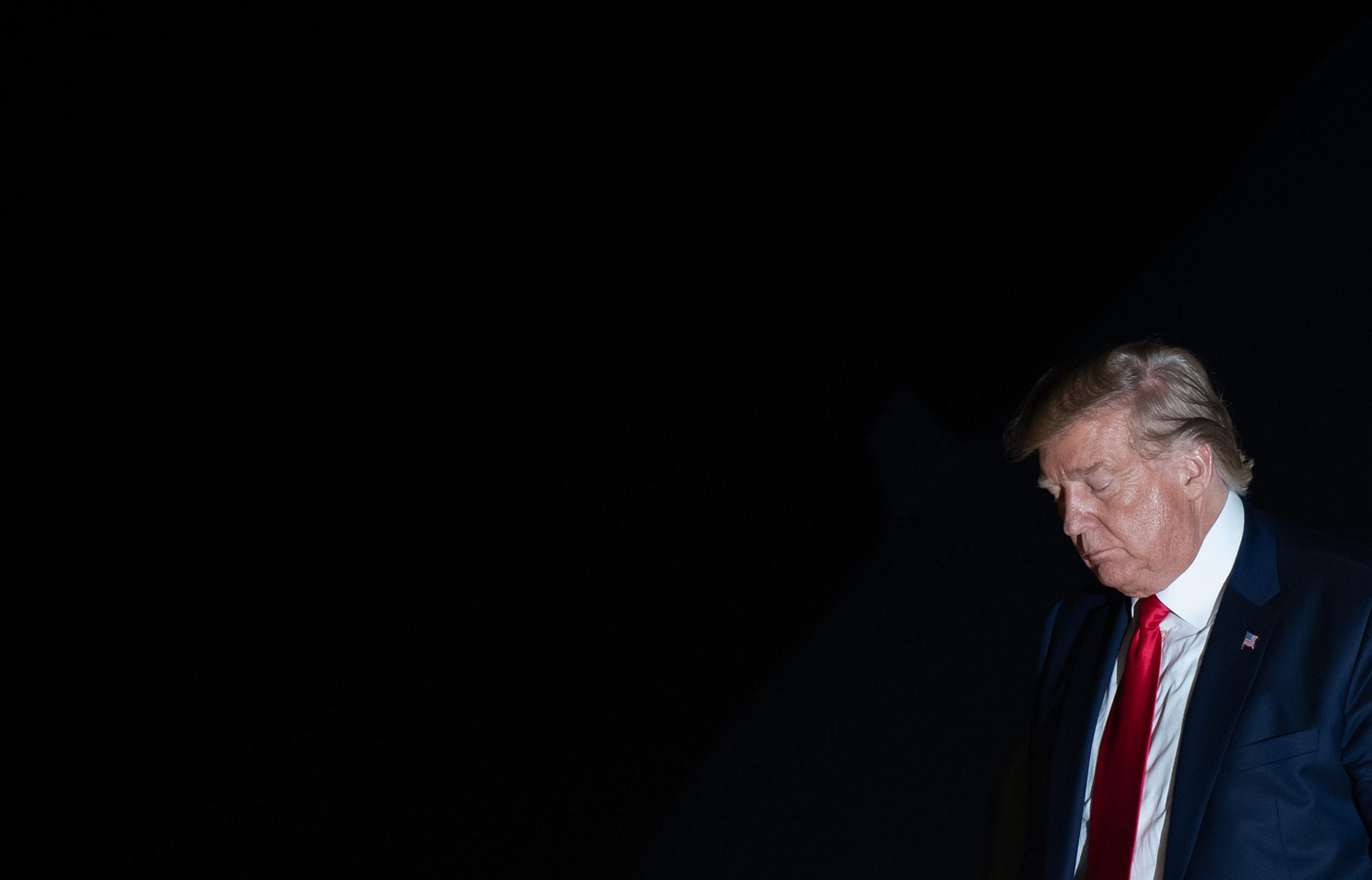Could This Be the Moment Trump Loses America?
Public reaction to El Paso shows a realization that Trump has been stoking racist hatred.
President Trump is about to learn what Lincoln meant when he said, “I claim not to have controlled events, but confess plainly that events have controlled me.” His response to the tragic events in El Paso and Dayton could well define his presidency.
I have come to see Meet the Press with Chuck Todd as the closest thing we have today to the role Johnny Carson’s monologues served in my youth. Namely, the dialogue on Meet the Press serves as a reflecting pool for the core center of the public’s reaction to current events. It is not the force causing the public reaction, but it has become the nation’s de facto mirror for reflecting that reaction.
While watching Meet the Press on Sunday, I sensed that we have crossed a line. Public reaction is beginning to come together behind a clear sense that Trump has been legitimizing and stoking white nationalist hatred. And I doubt the public will have a neutral or modest reaction if this perception of licensing hate hardens.
Mick Mulvaney was a decidedly unpersuasive apologist for what the president has been saying and how Trump has been exploiting racialism leading up to this weekend’s tragic events. The muted reaction from Trump over the weekend and his seeming openness to finally confronting the question of tightened background checks indicates that the president senses that he faces a real problem.
George P. Bush made his grandparents proud in speaking against white nationalist terrorism. I think his use of his good name may just resonate at the center of public opinion. Trump may sense something forming here in the minds and hearts of real folks; at least it seemed to influence his tone in Monday’s press conference, when he said, “In one voice, our nation must condemn racism, bigotry, and white supremacy."
Now it will take a week or so for the polling data to settle in, but one way or the other, the tragedies of this past weekend will burn into public opinion. The El Paso shooting is being investigated as domestic terrorism, and many of the victims were immigrants or of Hispanic background. Coming as it did on the heels of the president’s rhetoric, the weekend’s events are likely to be seen in retrospect as reflecting “send them back” and the “infestation charges” regarding Baltimore. Feelings this deep tend to produce lasting, some might even say, profound reactions from the public.
What President Trump should be worried about is the reaction from the ideological middle of the country. As the recent NBC/WSJ poll of July 7-9 showed this swing bloc is roughly 20 percent of the overall electorate. If these voters, the vital center of the American electorate, come to believe that Donald Trump as president, his rhetoric and political style, have become a threat to public safety, that is a seminal development.
If that reaction takes hold, El Paso could be for Trump what the Tet offensive was for President Johnson. The moment, as Johnson said, when he lost the country was after he lost Walter Cronkite on the reaction to the Tet offensive. Of course, were Trump to rise to the occasion and succeed at beginning the process of binding the nation’s wounds that, too, would impact public opinion and ameliorate the decline in his public prestige.
Most polls have shown Trump’s job approval ratings dropping—before the tragic events of this weekend—toward 40 percent, though other polls show him at the 45 percent to 46 percent level. But events this sharp move public opinion. So it is too early to truly measure the impact of the process Trump began with the “send them back” attacks.
The real point to be made here is very much beyond narrow politics. This is also way beyond ideology and partisan advantage. In the final analysis, this is about what kind of nation and society America wants to be.
Those who angle for narrow or transitory political advantage will miss the seriousness of this moment, whether they be Trump or his Democratic opponents. The American public is likely to make this a watershed moment in our nation’s experiment as the world’s longest and greatest democracy.


